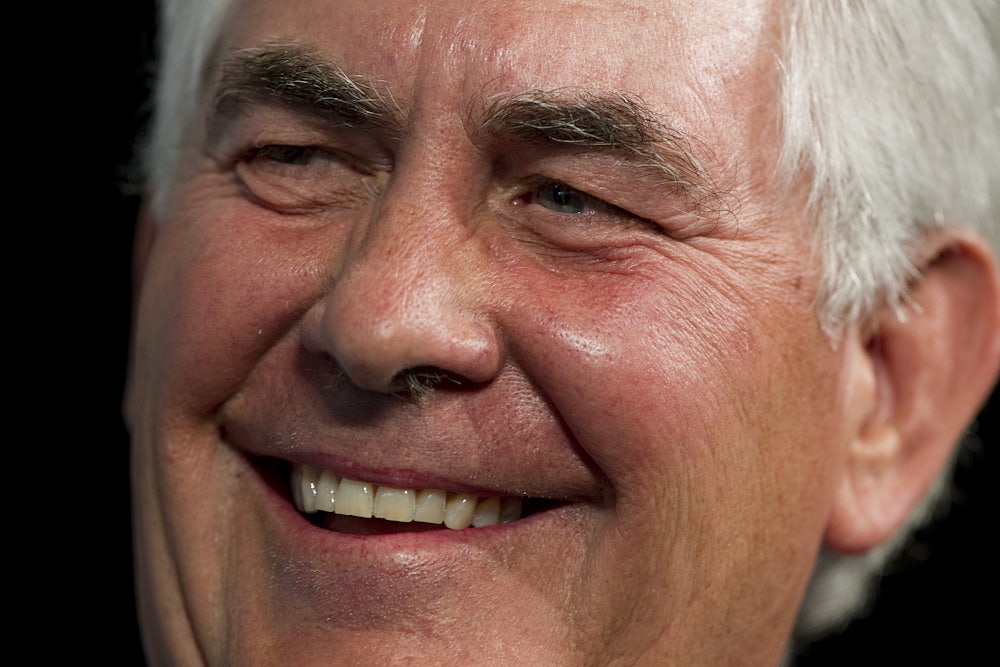To block Donald Trump’s cabinet nominees, Democrats need the help of at least three Republicans. This has led Democrats to place their faith in a handful of hawkish Republicans—most notably John McCain and Lindsey Graham, but also Marco Rubio and Rand Paul—who have voiced concern at Trump’s plan to have cozier relations with Russia.
Democrats began sounding the alarm when Trump nominated Tillerson, the CEO of ExxonMobil who was awarded the Russian Order of Friendship in 2013, to be secretary of state. By late December, it looked as though McCain and Graham, with the help of one other senator, could submarine Tillerson’s nomination.
But on Sunday, McCain and Graham folded, releasing a joint statement that said, “Though we still have concerns about his past dealings with the Russian government and President Vladimir Putin, we believe that Mr. Tillerson can be an effective advocate for U.S. interests. The views that Mr. Tillerson has expressed, both privately and publicly during the confirmation process, give us confidence that he will be a champion for a strong and engaged role for America in the world.” Rubio folded on Monday, reportedly after being pressured by Texan oil donors. With support from McCain, Graham, and Rubio, Tillerson will be confirmed.
This was always a marriage of convenience for all parties. Democrats could say that they had bipartisan support in opposition to a cabinet appointment, Graham and McCain could push their hawkish foreign policy, and Little Marco could make a show of being independent, which may prove useful when he runs for president again, which he certainly will.
But it should also be a lesson for Democrats and everyone else to stop putting their faith in the GOP. Whatever resistance there is to Trump will come from outside the Republican Party.
